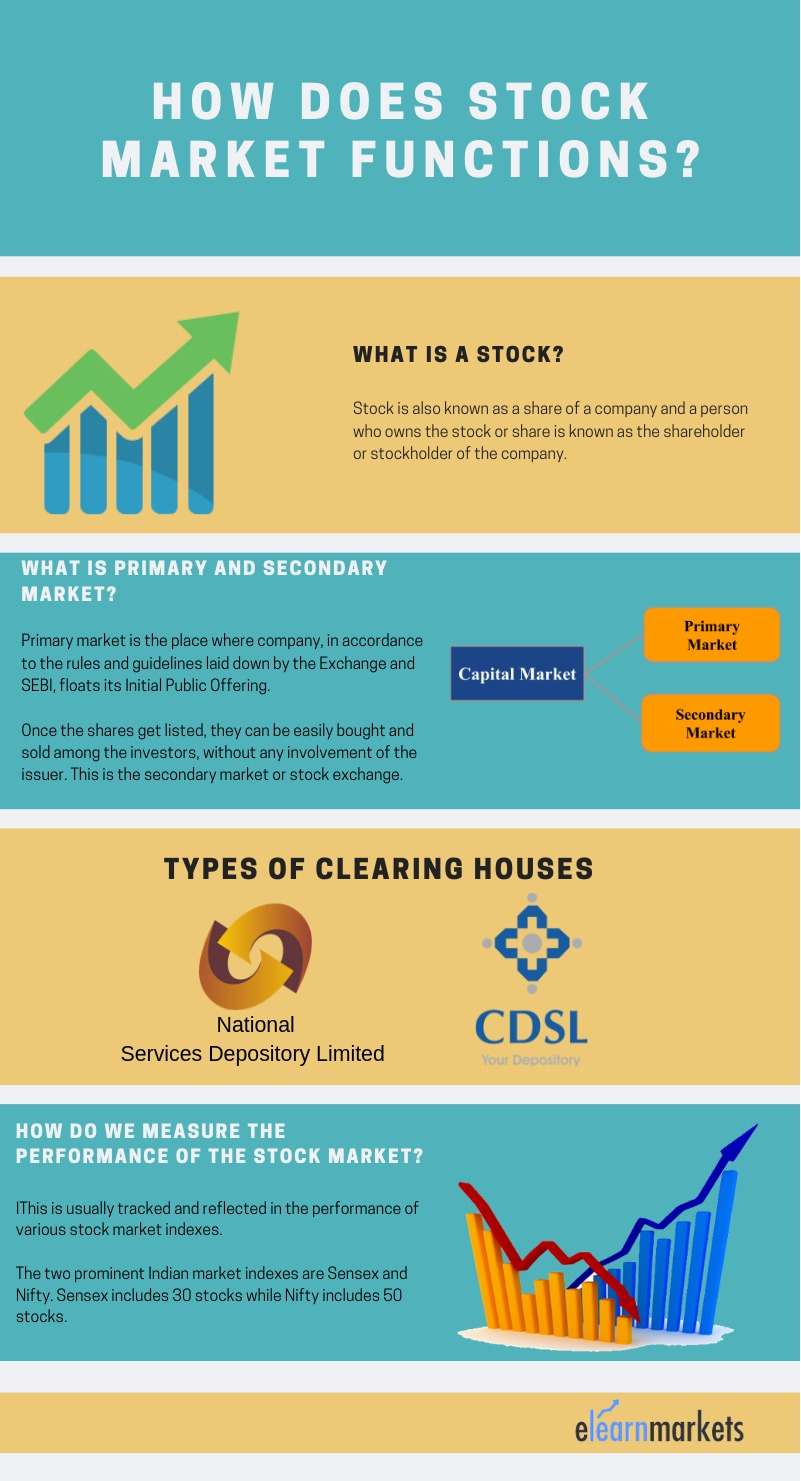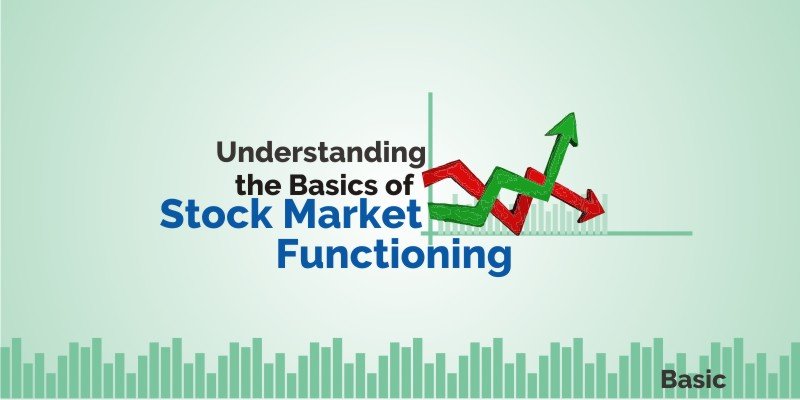A market is a place where buyers and sellers interact to trade physical goods and services. And when ‘Stock’ is prefixed to it we get a virtual market where stocks of a company are bought and sold also known as the Stock Exchange. We have curated this blog to make you understand the basics of the stock market and its functioning. Let’s start.
In India, there are two main stock exchanges- the National Stock Exchange (NSE) and the Bombay Stock Exchange (BSE).
What is Stock Market?
Stock is also known as a share of a company and a person who owns the stock or share is known as the shareholder or stockholder of the company.
Now, the question that arises is why do companies’ share their ownership or go public?
Basically, companies need large amount of funds to support their operations and expansion, however, without increasing their debt burden.
Thus, in exchange for giving up a tiny fraction of their ownership control, it can have an access to a large pool of funds and thus spread the risk of ownership among a large group of shareholders.
Moreover, this amount is not required to be paid back to the shareholders.
Here comes the role of the stock exchange – the only route for the company to go public.
What are Primary and Secondary markets?
Primary market is the place where company, in accordance with the rules and guidelines laid down by the Exchange and SEBI, floats its Initial Public Offering.
This allows the company to list its shares on an exchange and make them available to the public for the first time.
Once the shares get listed, they can be easily bought and sold among the investors, without any involvement of the issuer. This is the secondary market or stock exchange.

What is trading mechanism followed by the Exchanges?
Trading takes place through an Open Electronic Limit Order Book in which best order is matched by the trading computer.
Remember, all orders are need to be placed by the brokers.
Once the order has been executed it needs to be settled so that the buyer gets the shares and the seller gets the cash in their account.
All deliveries are compulsorily made in dematerialized or electronic form which is maintained by the depositories:
Central Depository Services Limited (CDSL)
National Services Depository Limited(NSDL)
The Equity Spot markets follow a T+2 rolling settlement, therefore if the investor has placed an order on Monday it will get settled by Wednesday.
This is overseen by the Clearing House.
So, we see that the Stock Market is a fairly complex place and involves a number of participants.
Thus, it becomes necessary to ensure that all participants adhere to fair, transparent and orderly standards.
Here comes Securities and Exchange Board of India (SEBI) established as the apex body for regulation of stock exchanges and its various participants in India.
How do we measure the performance of the stock market?
This is usually tracked and reflected in the performance of various stock market indexes.
Indexes are the basket of securities of an exchange and their daily scores indicate the overall sentiment of the investors in the market.
The two prominent Indian market indexes are Sensex and Nifty. Sensex includes 30 stocks while Nifty includes 50 stocks.
So, basically stock market is the economic barometer of a country that aids in providing capital to companies and investment income to investors.
However, still a very low percentage of the Indian household savings are invested in the stock market.
But with growing financial literacy and a stable financial market, we might see more inclination towards the stock market in the coming times.
Key Takeaways:
We should always understand the basics of stock market and functioning of a product before venturing out into using it.
Stock exchanges are the barometers to the country’s economy.
Working of the stock exchanges is controlled by SEBI for the Investors benefit.
Any trades executed in the exchanges are regulated by the intermediaries.
Sensex and Nifty are the Indices of stock markets where FII’s, DII’s and retail participants invest to create wealth.
Join our basics of finance course to learn more such concepts easily.
In order to get the latest updates on Financial markets visit Stockedge









I have learn some just right stuff here. Definitely worth bookmarking for revisiting. I surprise how much effort you place to make this sort of great informative website.
It’s a great content !